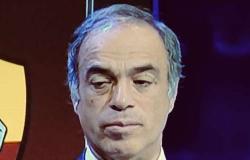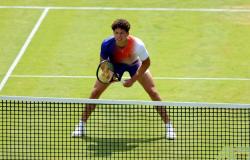Antonio Gengaro, candidate for mayor of the centre-left, recently reiterated the importance of collaboration and cultural valorisation between the capital and the province during a discussion on Culture and Community, moderated by Romualdo Grillo at the headquarters of the electoral committee in Piazza Libertà. Gengaro highlighted the need to build knowledge chains, enhancing sectors such as cinema, literature and food and wine, and networking cultural structures such as the Elysée, the Gesualdo and the Casina del Principe.
The value of culture in economic and social growth
Gengaro recalled the importance of culture not only as an element of social growth, but also as an economic driver, citing the experience with the Di Nunno administration and the cinema in Piazza Duomo as an emblematic example. “I continue to be convinced that culture helps communities grow but is also a driving force for the economy. The most imaginative thing we achieved with Mayor Di Nunno was the cinema in Piazza Duomo”. The candidate criticized the current administration for insufficient investment in cultural infrastructure, underlining the need to enhance the Gesualdo Theater and involve private individuals to relaunch local culture. “Today it remains closed for half the year but it cannot function in this way. We must start again from the project of a training school for theater professions, of a production center that allows us to fully promote the resources we have. However, in these For years no one has ever tried to involve private individuals to actually invest in Gesualdo”.
A new cultural ecosystem: the perspectives of Massimo Adinolfi
Massimo Adinolfi, philosopher and artistic director of the Campania Libri Festival, observed how the cultural ecosystem has completely changed, requiring an approach that enhances long-lasting initiatives rooted in the territory. “The ecosystem of culture has completely changed. Today more than ever we must ask ourselves what it means to create culture in a southern and inland city. It is clear that performative moments end up taking over and it is increasingly difficult to work on lasting projects that take root in the territory and contribute to defining the identity of a community but precisely for this reason the challenge ends up being more exciting”. Adinolfi emphasized the importance of using new means of cultural diffusion, such as podcasts, to enhance local stories. “There are many good practices that can be implemented. Today, more than ever, the written word is part of an ecosystem that includes other means to be systemised, from the audiovisual one to a channel for disseminating culture such as the podcast, which could be used to enhance the stories of the territory”.
The vision of Francesco Todisco and Leonardo Festa
Francesco Todisco, candidate for the European elections, argued that the culture of Avellino must be relaunched through a network of projects and lasting experiences, involving training structures and places of culture. “The theme is always the same, culture is relaunched if Avellino returns to being a provincial city, if it returns to building a function for a larger territory. This is a discussion that applies to services but also to culture, starting from that fabric of containers that has been used up to now for spot initiatives. The objective we propose is to build a network of projects and experiences that last over time and enhance the city’s resources”. Leonardo Festa, candidate for the City Council on the PD list, highlighted how culture should be seen as an investment, proposing the creation of a major cultural event that can deseasonalize tourism and enhance the experiences of local artists. “We need to think of culture more as an investment than as an expense, betting on the return that can derive from the planning of large cultural events. Avellino lacks a great attractor such as the Campania libri festival in Naples, in Benevento the Strega prize, which can play a role crucial in the moments of the year that have less tourist circuit, favoring deseasonalisation. I am thinking of the image return for the city that derives from an event like the Laceno d’Oro”.
The challenges of Laceno d’Oro and the Casa del Cinema
Antonio Spagnuolo, president of the Laceno d’Oro Imagination and Soul Club, criticized the lack of institutional support for cultural projects such as the Laceno d’Oro Foundation and the management of the Elysée. “The Foundation project never started, the only provision was the act of appointment of the director who should have started work. The body that owns the properties should have transferred the loan for use to the Foundation, chaired by the same mayor”. Spagnuolo underlined the importance of investing in the education of new generations of spectators and of promoting a cinematographic culture that is an expression of reality, following Pasolini’s legacy. “We tried not only to create culture but also to offer opportunities to young people, offering them the tools to interpret reality”.
Roberta De Maio, candidate for the City Council on the PD list, finally underlined the need to overcome cultural provincialism, reconciling local energies and nationally renowned artists to create true cultural resistance. “One of the problems of creating culture in the city is overcoming provincialism, reconciling local energies and nationally renowned artists, through true cultural resistance”. Culture, according to the protagonists of the debate, must be a central element for the development of the city, through an integrated and participatory vision that involves all the actors of the territory.





